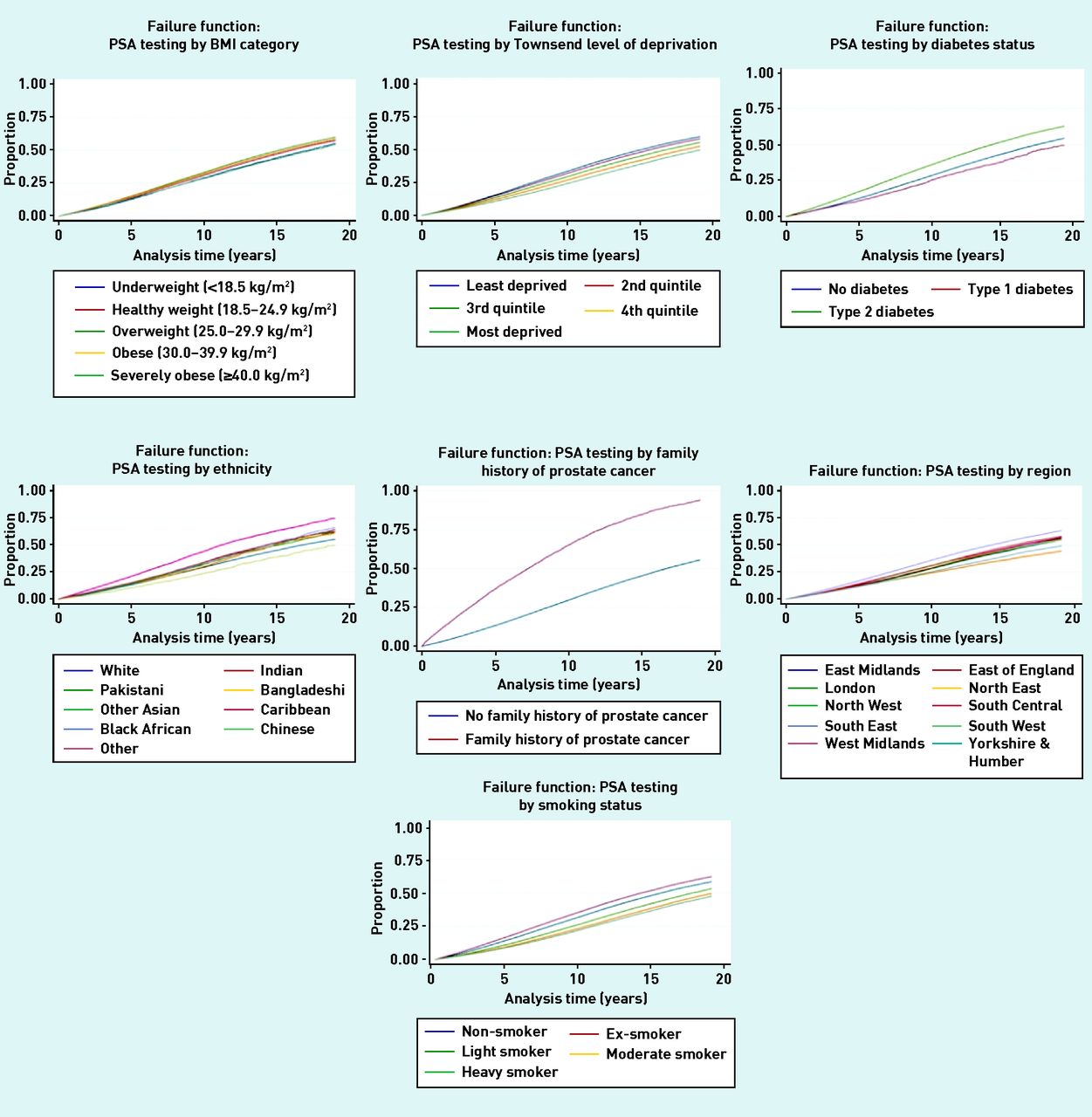Status
Completed
Title
Prostate specific antigen (PSA) testing in the UK population and its implications
What were the objectives of the study?
Screening tests can be used to find cancers at an early stage before symptoms appear. For prostate cancer, a blood test called PSA can be used. A good screening test should find prostate cancers earlier, before they have spread to other parts of the body. By finding and treating cancers earlier, fewer men should die from prostate cancer. Several studies have tried to see if prostate screening can prevent prostate cancer deaths, but the results are not clear. There are also concerns about screening causing unnecessary anxiety or further tests. In the UK, men can have this PSA test if they ask their GP but there is not a national screening programme.
Our project seeks to answer several questions about prostate screening in the UK:
How many men are having PSA tests for cancer screening?
Do different areas in the UK have different levels of screening?
Are men that have a higher risk of prostate cancer having more PSA screening?
What are the benefits and risks of choosing to have prostate screening?
How was the research done?
We will use a large patient database called QResearch to find information on men who had PSA testing done for prostate screening, but had no symptoms of prostate problems. We will see if screening is more or less likely depending on whether men are from wealthy or poor areas, where they live in the UK, what ethnicity they are, and if they are at high risk of prostate cancer. An important part will be looking at what happens to men if they choose prostate screening compared with men who don’t – are they treated differently, does it affect their survival, and what are the consequences?
Chief Investigator
Julia Hippisley-Cox
Lead Applicant Organisation Name
Sponsor
Nottingham
Location of research
Nottingham
Date on which research approved
01-May-2018
Project reference ID
R109
Generic ethics approval reference
18/EM/0400
Are all data accessed are in anonymised form?
Yes
Brief summary of the dataset to be released (including any sensitive data)
Cohort of men aged 40-75 years registered with the GP practices between 1998 and 2017.
GP data included age, deprivation score, ethnicity, body mass index, smoking status, family history prostate cancer, mental health diagnoses, diabetes, prostate specific antigen tests, urinary tract symptoms.
Mortality data included cause of death and date of death
Hospital Episode Statistics Diagnoses of prostate cancer
Cancer Registry Diagnoses of prostate cancer and associated dates
What were the main findings?
To the authors’ knowledge, this is not only the largest study ever to report on the rates of PSA testing and opportunistic PSA screening in the UK population, but also the most comprehensive in terms of time period, geographical coverage, and examined risk factors. The potential rate of opportunistic prostate cancer screening in the general population of men aged ≥40 makes data from the Cluster Randomised Trial of PSA Testing for Prostate Cancer (CAP) complex to interpret. However, increased rates of opportunistic screening were significantly associated with black African and Caribbean ethnicity, increasing age, increased affluence, and family history of prostate cancer. There were also reduced rates in men with diabetes and smokers, as well as regional variation.
Implications and Impact
There is a lot of debate about the benefits and harms of prostate screening. Other studies are not clear about this. Our study offers a new way of seeing if prostate screening is safe in the UK, as we can find large numbers of men who have had screening, and see what happened to them. If prostate screening is safe, we can measure its benefits, and find ways to improve it. If the risks and benefits are balanced, then the NHS and government can use this to develop better ways of screening for prostate cancer in the future.
Funding Source
Not externally funded
Public Benefit Statement
Research Team
Ashley K Clift, Carol Coupland, Julia Hippisley-Cox: University of Nottingham
Publications
-
Prostate-specific antigen testing and opportunistic prostate cancer screening: a cohort study in England, 1998–2017
Authors: Clift AK, Coupland CAC, Hippisley-Cox J
Ref:
https://bjgp.org/content/early/2021/01/11/bjgp20X713957

Access Type
Trusted Research Environment (TRE)
